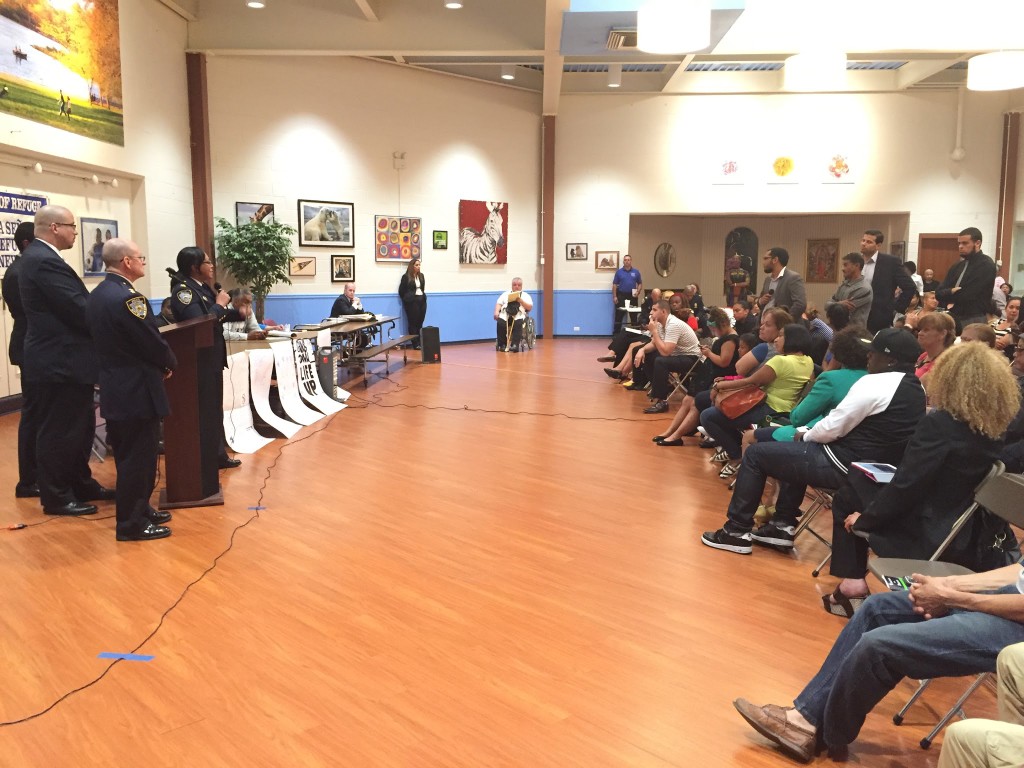
The recent spike in violent crimes in Fordham/Kingsbridge raised concerns from residents over policing tactics and deployment of resources in the neighborhoods.
The September fatal shooting of 24-year-old David Hooks on Briggs Avenue and 194th Street has worried residents and civic leaders as shooting incidents have risen by 27 percent in the 52nd Precinct so far this year.
Those concerns were loudly voiced at a recent town hall meeting organized by Councilman Ritchie Torres of the 15th Council District to discuss the violence in the community after Hooks’ shooting just blocks from Fordham University. The motive for the shooting is still unclear.
Some policies that the NYPD have discontinued may have contributed to the rise in crime according to Billy Cannon, professor of Criminal Justice at Monroe College. Cannon, who retired as a detective sergeant with the NYPD after 27 years, says policies such as stop-and-frisk have handcuffed police officers from doing their jobs, which could lead to a crime spike. Last year, a federal judge ruled the policy as unconstitutional.
“Why should a cop put his license and career on the line by stopping people?” said Cannon. “No doubt stop-and-frisk was overused and the police have lost the trust of the communities. But broken window crimes aren’t being enforced. And when violent criminals know they won’t be stopped, crimes go up.”
Torres disagrees with the link between a lax stop-and-frisk policy and the rise in violent crimes. Instead, more available resources for the community are what are needed, according to Torres. “There are some of these kids who engage in violence because they don’t have opportunities. That is the responsibilities of the government and we are fighting to bring the necessary resources to the community.”
The Fordham Bedford Community Services, a nonprofit community-based organization, runs a free playground directly across from where Hooks was shot. Over 500 kids were registered to attend daily events this past summer and an average of only 85 to 100 kids showed up, the lowest attendance ever in the community.
Some residents blame it on a disconnect between local officials, law enforcement and the communities they serve. “There’s never an ongoing dialogue between the police and the community. The only time that happens is when the police go to investigate a crime,” said Aldo Perez, a resident and local activist who attended an anti-crime rally Sept. 24. “The problem is that we have old ideas and old fashioned way of doing things without having an integrated community dialogue.”





It’s the same old ghetto nonsense – never enough “opportunities” for minorities. Yet a good percentage of them, including in this area, are handed every God damn program under the sun from conception to death.
The problem isn’t a lack, but rather irresponsible parents and a lack of a father in the home. Keep tossing money at the problem. It’s not going to fix the stupidity of the ghetto minority mentality that too many have.